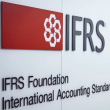BeZero Carbon has unveiled its methodology for rating Jurisdictional REDD+ (J-REDD+) programmes and issued its first rating under the framework, assigning a ‘BB’ grade to ART102 in Guyana. The release marks an expansion of BeZero’s assessments beyond project-level carbon credit evaluations.
The newly introduced methodology follows extensive consultation and is based on the latest science guiding assessments of carbon integrity and associated social and environmental risks in jurisdictional crediting frameworks. BeZero defines a ‘BB’ rating as indicating a moderately low likelihood that each credit equates to one tonne of carbon dioxide equivalent (CO₂e) avoided or removed.
J-REDD+ refers to national or subnational government-led initiatives aimed at reducing emissions from deforestation and forest degradation. Unlike project-level REDD+, J-REDD+ schemes typically operate across entire jurisdictions, involving vast tracts of forest, diverse ecosystems, and Indigenous territories. Guyana’s ART102, developed under the ART TREES framework, is currently the only J-REDD+ credit supply eligible for use under the first phase of CORSIA—the UN-backed Carbon Offsetting and Reduction Scheme for International Aviation.
BeZero’s methodology reflects the unique characteristics of jurisdictional programmes, including the role of sovereign governance, long-term policy commitments, and historic funding arrangements. It also introduces a new sub-sector within BeZero’s rating classification, distinct from project-level REDD+.
“Our rating for ART102 highlights the crucial role that independent assessments play in identifying risk within compliance schemes such as CORSIA,” BeZero stated. The rating agency noted that even within high-integrity methodologies, the performance of credits can vary significantly—necessitating external verification to ensure climate claims are credible.
Beyond carbon efficacy, BeZero’s assessment includes an evaluation of ART102’s social and environmental safeguards, underscoring the broader impact of jurisdictional programmes. The agency emphasised that while such safeguards do not influence the carbon rating itself, they are essential for understanding the holistic outcomes of large-scale emissions reduction initiatives.
BeZero further cautioned that compliance schemes should not assume all eligible credits deliver equal environmental outcomes. The agency is calling for the integration of independent ratings into regulatory frameworks to improve transparency and incentivise the use of higher-quality credits.
As jurisdictional programmes like ART102 become more prominent in both voluntary and compliance markets, BeZero reiterated the importance of rigorous, unbiased analysis to uphold the integrity of carbon offsetting efforts.





















